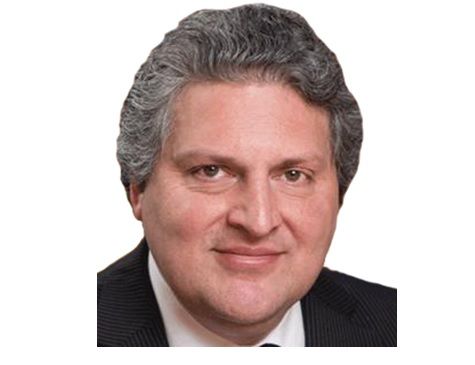ARE WE AT a tipping point in terms of fixed income, currencies and commodities leadership and the ways this needs to change as banks face a whole new set of realities?
What am I talking about? Well, David Sobotka, global head of FICC at Bank of America Merrill Lynch and a market veteran of some 35 years’ standing, is leaving the firm at the end of the year. The news comes just a year after Gerhard Seebacher, his former co-head and long-time legacy Bank of America man, walked to join hedge fund Brevan Howard as co-head of debt trading.
Given his background, I’d say Sobotka has “hedge fund” written all over him, although reports suggest he may end up teaching or working in the not-for-profit area. Net result, though: BofA Merrill has lost its two FICC heads within a year of each other at a critical time.
The way the story is being told, it appears that Sobotka felt it was a good time to bow out as the division had been performing better of late and the retooling of the business had happened ahead of time. BofA Merrill’s reported Q3 FICC number ranked third, behind JP Morgan and Citigroup. In Coalition’s Q3 league tables, the US bank ranks between fourth and sixth globally in FICC, but first in G10 credit and joint first in municipal finance. So maybe Sobotka figured now was as good as time as any.
IN AN ALMOST identical development at Deutsche Bank (though different in that neither is leaving the firm), Zar Amrolia has just given up his role as co-head of the firm’s fixed income and currencies business to take on a tech development position at the bank. More to the point, the Deutsche-Goldman-Deutsche man’s move comes just six months after former co-head Wayne Felson shifted into a risk, capital, leverage and technology role.
It’s interesting insofar as Deutsche only recently created its FIC business out of the merger of global finance, foreign exchange, rates and credit trading, and since its creation in 2012 both heads have moved away from running it. Amrolia had been head of FX and electronic trading while Felson ran rates and credit trading. Their moves leave Rich Herman, former head of the institutional client group (and who moved to fill the gap left by Felson only in February) as sole head of FIC.
While Amrolia and Felson’s new roles are a little opaque (well to me anyway) they do appear to play into the electronification theme and the rewiring that’s all the rage across fixed income – and a theme close to the heart of Colin Fan, co-head of DB’s corporate banking and securities business and markets head. Fan, of course, will be flying solo in his divisional role for a while since his CB&S co-head and corporate finance supremo Rob Rankin is leaving in January, putting an end to another two-year experiment.
Can we expect more leadership changes as the industry morphs?
SOMETHING BIG IS clearly going down in the FICC world but I wonder how, whether and to what extent current personnel changes are linked to wider changes in the industry’s DNA and future fortunes, whether they’re coincidence, or the outcome of internal political manoeuvring. And can we expect more leadership changes as the industry morphs? On the latter score, I say: absolutely.
One of the key issues in moves to electronify the trading business is that technology solutions don’t need to respect product boundaries. That means formerly discrete product silos are being rammed together on the back of an imperative to share tech platforms and solutions, which in turn creates cost and other efficiencies and facilitates cross-market solutions. But this doesn’t reflect cultural differences between businesses.
This is causing friction, but something has to give. Using Coalition data again, FICC revenues of US$91.7bn in 2012 and US$73.9bn in 2013 (pulled down by big declines in G10 rates and securitisation) are forecast to fall again to US$70.9bn in 2014 for its universe of 10 leading firms. While I’ve been supporting a gradual reflation of FICC revenues in 2015 and beyond, this is far from certain.
How FICC evolves will clearly affect succession planning: succession stakes in businesses in flagrant transformation always make for fascinating viewing. Given where we’re headed, I would imagine the future might be bright for people such as Christopher Bae, whom Sobotka promoted to global head of electronic trading for FICC. I’d also love to know where things will end up with Michele Foresti, the long-time Deutsche man who got a big bump up the pecking order when BofA Merrill hired him as head of EMEA FICC but who is in limbo pending the outcome of the storied Monte dei Pashi di Siena Santorini deal. He has yet to receive FCA clearance to join BofA.
And there are also Will Roberts and Sanaz Zaimi, former Goldman traders brought in by Montag. Roberts is now global head of rates and counterparty portfolio management while Zaimi is global co-head head of FICC sales. Of course the Montag link is a pretty crucial thing to have up your sleeve if you want to get on at BofA.
People often talk about generational shifts as investment banking adapts to major changes brought about by regulation and related market structure changes. As grandiose as this sounds, I sense this is what’s starting to happen in FICC, the business most affected by those changes.
